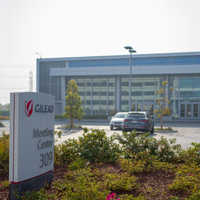ABOVE: © ISTOCK.COM, TOMSMITH585
Update (August 25): The National Institutes of Health has said it will be conducting preclinical research on GS-441524 as a potential COVID-19 treatment. In a letter dated August 20, the director of the agency’s National Center for Advancing Translational Sciences wrote: “We are planning to independently test the therapeutic hypothesis for GS-441524 in treating SARS-CoV-2. . . . We expect to conduct these studies quickly and make the results available to the research community for further consideration.”
Gilead Sciences, the maker of remdesivir, is under pressure from citizen advocates to launch clinical trials on COVID-19 patients of another of its compounds—one that advocates claim could be cheaper, easier to make, and more effective at treating the novel coronavirus.
Remdesivir is currently the only medication to have emergency use authorization from the US Food and Drug Administration (FDA) for hospitalized COVID-19 patients. In a letter...
The letter presses Gilead and government health agencies to “either work collaboratively to promptly pursue the development of the experimental antiviral drug GS-441524 . . . as a treatment for [COVID-19] or publicly provide evidence why it is not scientifically or medically feasible to develop this drug in parallel with its close analogue, remdesivir.”
The organization isn’t the first to highlight the possibility of repurposing drugs used to treat feline coronavirus. An in vitro study posted as a preprint in May by researchers in Canada suggested that another drug used to treat viral infections in cats, GC376, could inhibit an enzyme that SARS-CoV-2 needs in order to replicate. The company with the license for that compound, California-based Anivive Lifesciences, is reportedly planning clinical trials, according to Science News.
Neither compound has received FDA approval in cats with feline coronavirus infections, let alone in people with SARS-CoV-2 infections. Gilead tells the Chicago Tribune that the company is working on preclinical studies with GS-441524, which, unlike remdesivir, had not been formally tested in people prior to the pandemic. Remdesivir had gone through rapid clinical trials during the West African Ebola epidemic of 2013 to 2016.
Derek Lowe, a drug discovery scientist and author of In the Pipeline, a well-known blog about the pharma industry, tells The Guardian that remdesivir and other antivirals such as GS-441524 will become less important to the public health response to COVID-19 as efforts to find other treatments and prophylaxes progress. “Monoclonal antibodies and vaccines are, to my eyes (and not just mine) the answer to this pandemic,” he says.
Interested in reading more?







